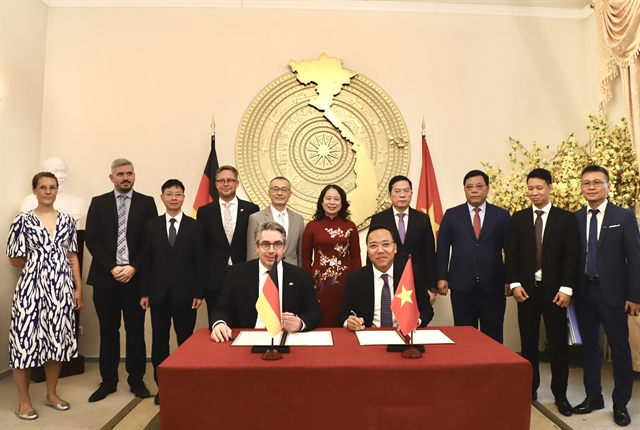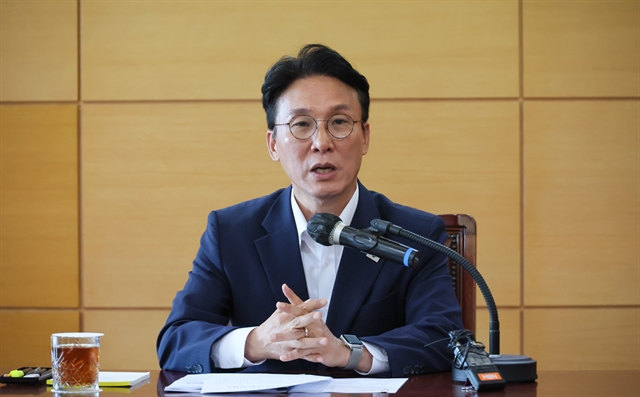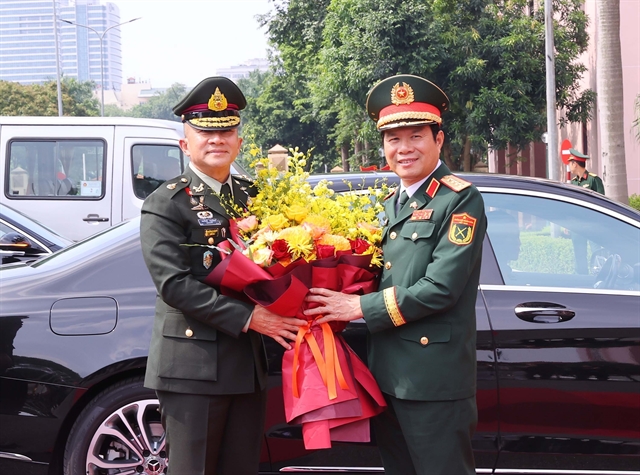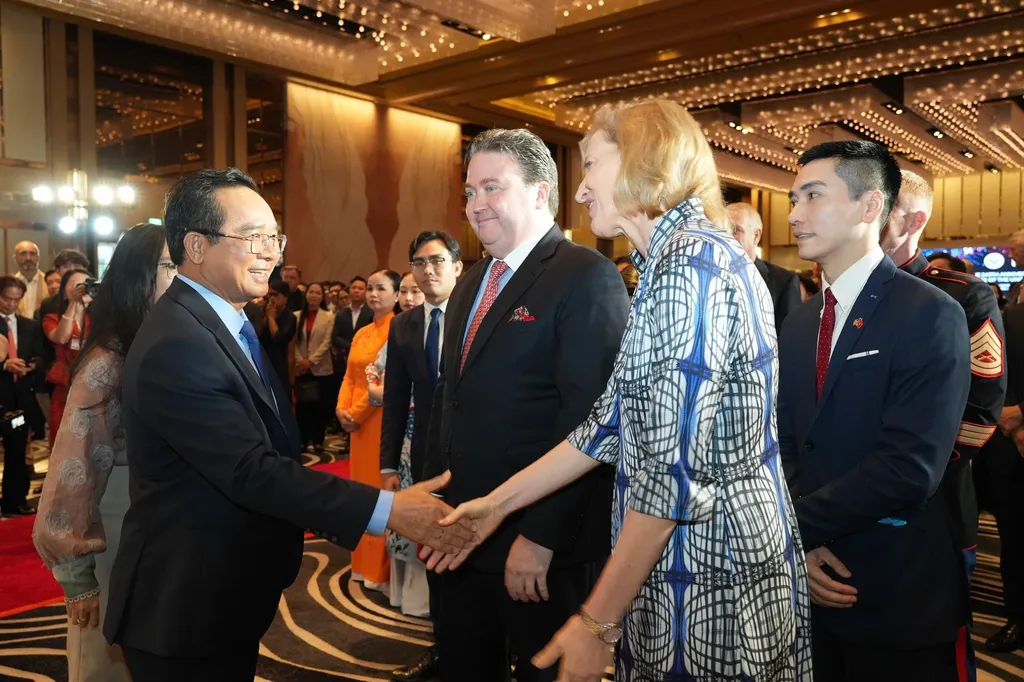- Saturday ,8:08, 5/7/2025
Việt Nam, Germany set up energy partnership to advance green transition
A joint declaration signed in Berlin marks a major step forward in Việt Nam–Germany energy ties, setting ambitious goals for offshore wind, green hydrogen, and power sector modernisation.
 |
| Vietnamese Deputy Minister of Industry and Trade Nguyễn Hoàng Long and Parliamentary State Secretary at the German Ministry for Economic Affairs and Energy Stefan Rouenhoff sign the Joint Declaration on Thursday (local time). — VNA/VNS Photo |
BERLIN — Vietnamese Deputy Minister of Industry and Trade Nguyễn Hoàng Long and Parliamentary State Secretary at the German Ministry for Economic Affairs and Energy Stefan Rouenhoff signed a Joint Declaration establishing the Việt Nam-Germany Energy Partnership in Berlin on July 3 (local time) in the presence of Vice President Võ Thị Ánh Xuân.
The declaration lays a comprehensive framework to accelerate Việt Nam’s energy transition, targeting carbon neutrality, enhanced energy security, and expanded business ties.
Key priorities include refining energy policies; scaling up renewable energy such as offshore wind, solar power, and green hydrogen; digitalising the power sector, improving energy efficiency, modernising power grids and supporting decarbonisation in industries resistant to emissions cuts.
The partnership will operate through annual high-level steering committee meetings, technical working groups, and expanded efforts in training, research, and business networking, deepening energy collaboration between the two nations, thus contributing to achievement of sustainable development goals.
In a working session following the signing, Long and Rouenhoff expressed optimism about the growing momentum in bilateral trade, industry, and energy relations, particularly as both nations are pursuing green transition. Germany, Việt Nam’s second largest trade partner in Europe, serves as a vital entry point for Vietnamese goods into the European Union, aligning with Germany’s strategy to diversify supply chains.
Long outlined Việt Nam’s energy goals under its National Power Development Plan VIII, which aims for renewable sources to constitute 47-53 per cent of total energy capacity by 2030.
This includes 46-73 gigawatts of solar power and 32-55 gigawatts of wind power, with 6 gigawatts of offshore wind by 2030 and an additional 17 gigawatts by 2035.
Việt Nam wishes for deeper cooperation with Germany in green hydrogen, workforce training, and building a robust energy ecosystem involving their small- and medium-sized enterprises, Long said.
For his part, Rouenhoff praised the impact of the EU-Việt Nam Free Trade Agreement on bilateral trade and reaffirmed Germany’s commitment to effective implementation. He also voiced support for expediting the EU-Việt Nam Investment Protection Agreement. Both sides agreed to strengthen energy-related workforce training and to convene the third meeting of the Việt Nam-Germany Joint Committee for Economic Cooperation in Việt Nam later this year.
Later that day, Deputy Minister Long attended a seminar on German support for developing renewable energy hubs in Việt Nam, co-hosted by the Vietnamese Ministry of Industry and Trade and the German Agency for Development Cooperation.
The event drew representatives from German energy firms operating in Việt Nam, including Enertrag, Enercon, RENAC, Neuman & Esser, GEO, and WPD. Participants discussed ongoing projects, future collaboration, and challenges needing solutions.
Franz-Josef Claes, Chairman and CEO of German energy group GEO, announced plans for a training centre in Việt Nam to develop technical workers and engineers specialising in renewable energy, coupled with technology transfer initiatives to bolster Việt Nam’s energy independence and reduce reliance on foreign suppliers.
Đào Quang Vinh, senior advisor at GEO, added that the company aims for the facility to become a pioneering wind power training hub not only for Việt Nam but also for broader Southeast Asia. — VNS



